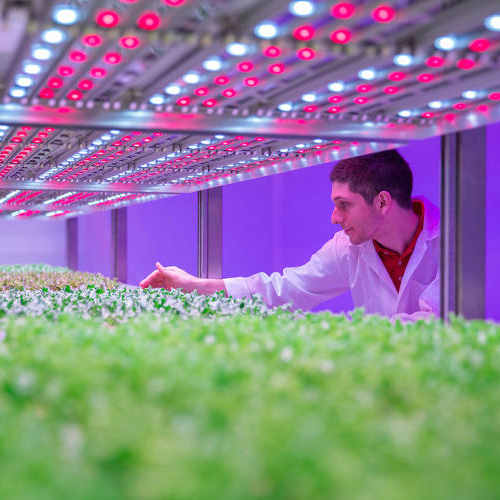Scientists Engineer Plants to Grow in Total Darkness

New research published in the journal Nature Food reveals that scientists have invented a way for plants to grow in total darkness. To do so, researchers used a process called artificial photosynthesis, where they fed acetate to plants as a carbon source, allowing them to bypass natural photosynthesis. They tested this on yeast, green algae, fungal mycelium, cowpea, tomato, tobacco, rice, canola and green pea, finding that all of them grew in the dark—with some actually growing more efficiently than in sunlight. Yeast, for instance, was 18 times more efficient. This artificial process could be a game-changer for the environment, as food as well as products like plastic alternatives, hydrogen fuel and methanol can be made more sustainably. “Using artificial photosynthesis approaches to produce food could be a paradigm shift for how we feed people,” says Robert Jinkerson, an author of the study. “By increasing the efficiency of food production, less land is needed, lessening the impact agriculture has on the environment.” Learn more about this breakthrough at New Atlas.
Image courtesy of Marcus Harland-Dunaway/UCR
Via newatlas.com link opens in a new window












